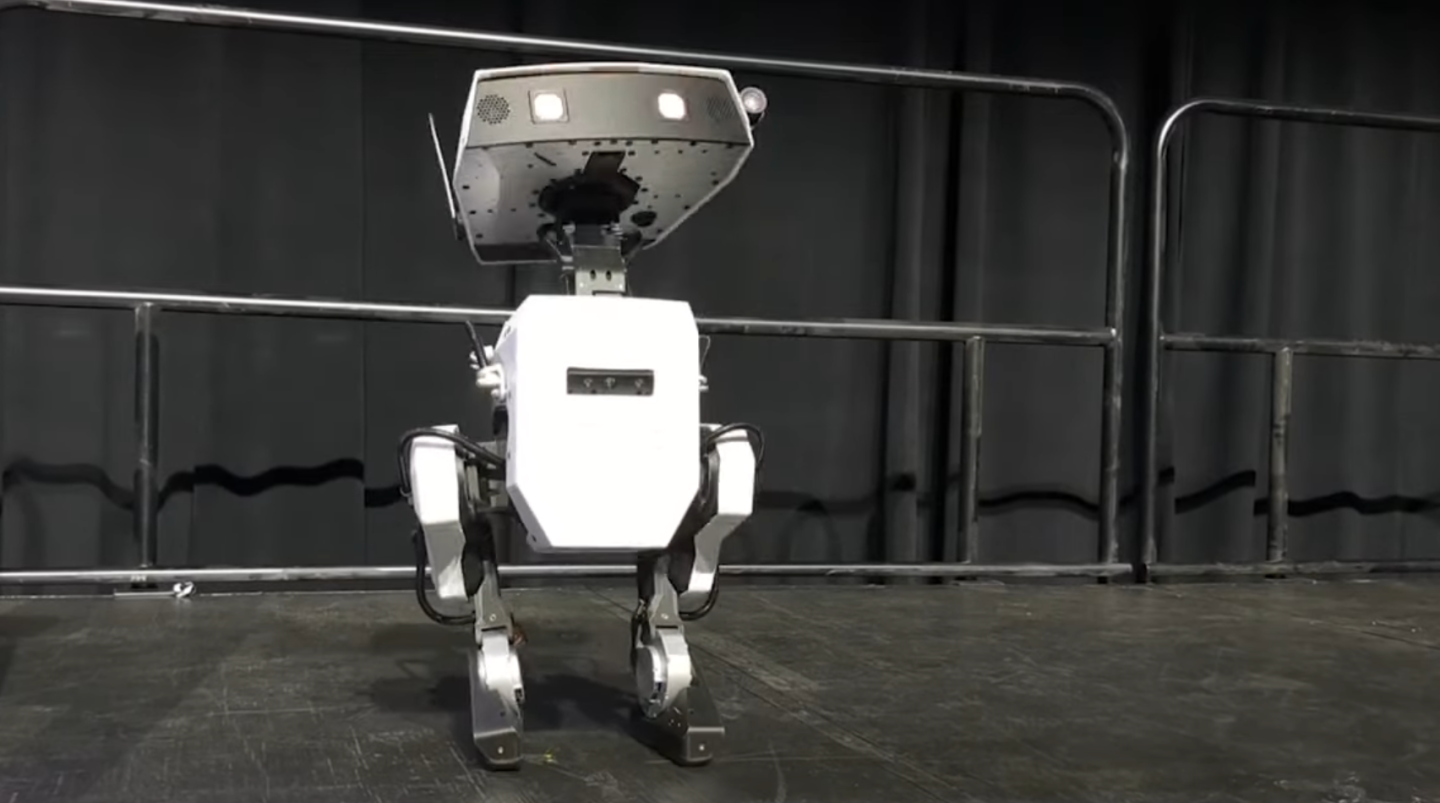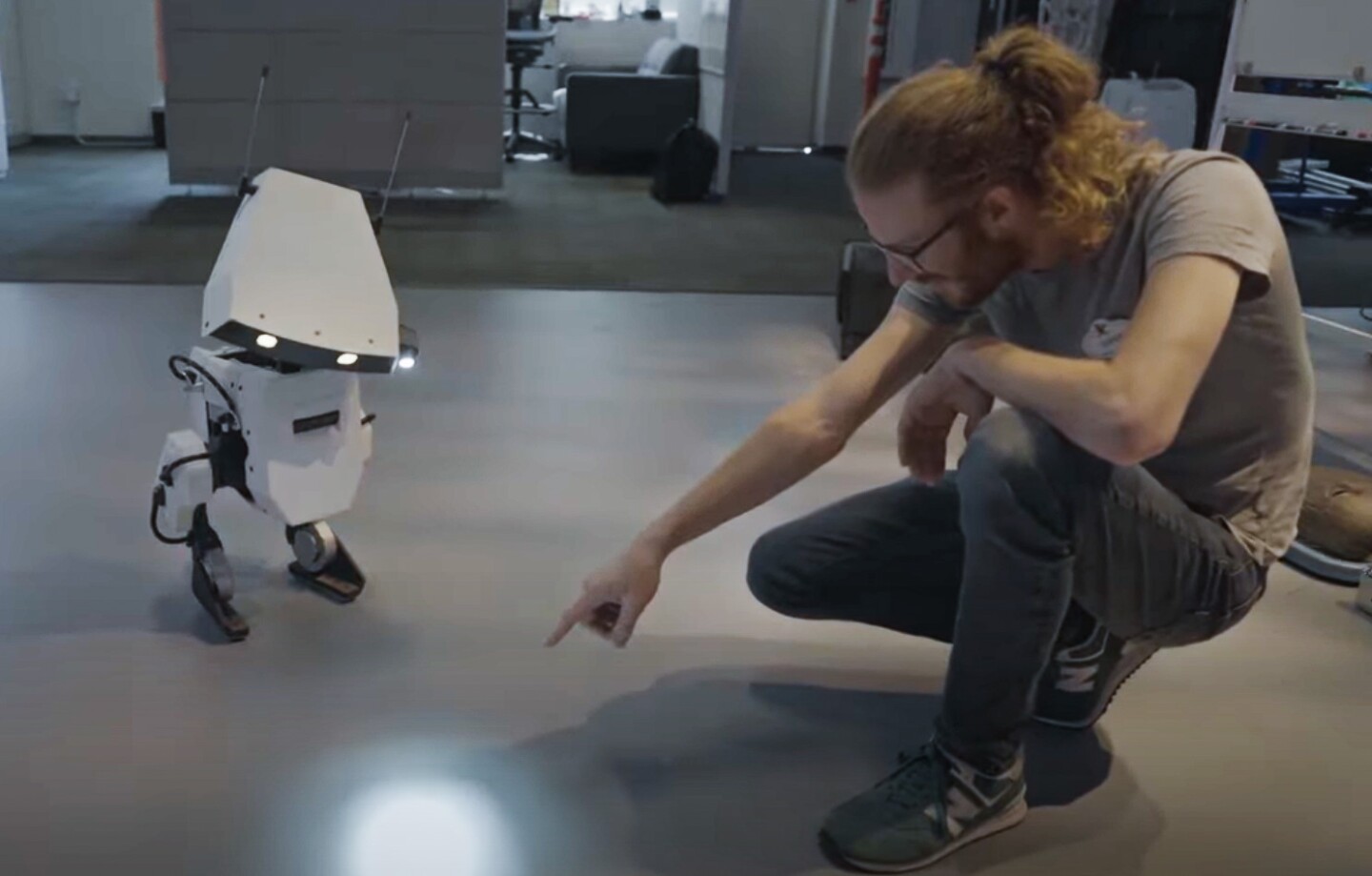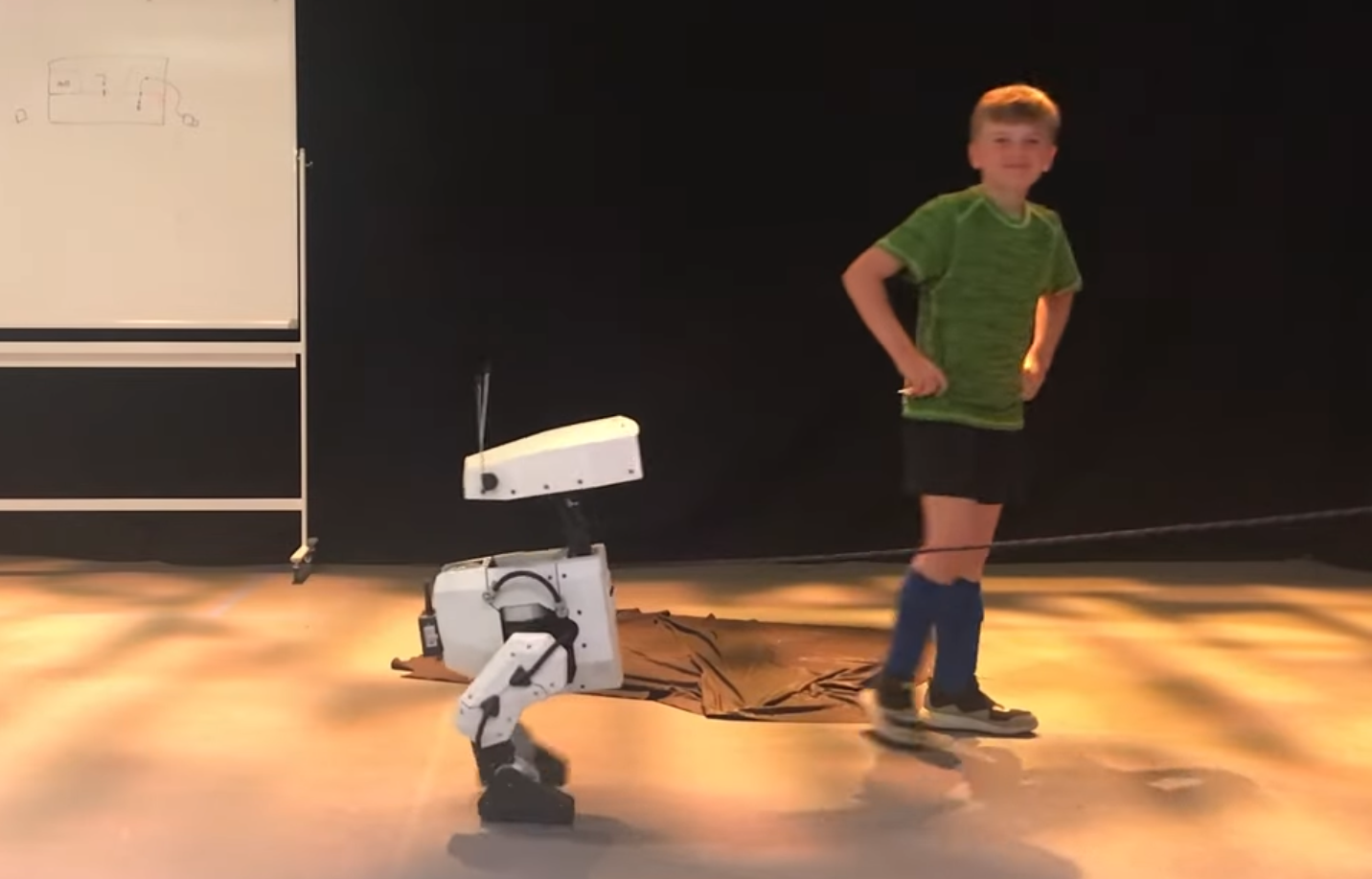
[ad_1]
Most robots stroll like they’ve dirty themselves; this one walks with a loopy quantity of persona. Disney is getting superb at combining the artwork of character animation with the science of bipedal robotics, and the outcomes are … lovely.
Unveiled on the IEEE IROS convention in Detroit final week, this new, unnamed robotic is clearly primarily based on the BD-1 designed for 2019’s Star Wars Jedi: Fallen Order online game, developed by Respawn Leisure.
Like BD-1, it is acquired a reasonably compact, boxy little physique, with a pair of stumpy, bird-like reverse legs, and a flattish head with eyes, a temple-mounted flashlight and a bit pair of antennae. The pinnacle is able to a variety of articulation, and here is the place numerous the persona is available in.

Disney
So as to make him look extra pleasant and interesting, BD-1 was designed to imitate some dog-like behaviors. When he is inquisitive about one thing, he’ll tilt his head. His antennae are capable of rotate, they usually mimic the actions of a canine’s ears. He comes throughout as earnest, inquisitive and downright lovely.
And it is outstanding simply how effectively these actions translate right into a real-world robotic. Take a look at the video:
A New Method to Disney’s Robotic Character Pipeline
It is a part of a longer-term push Disney has been engaged on to design robots which are able to transferring with type and character, utilizing a system that begins out with stylized actions designed by animators, and makes use of machine reinforcement studying to include the essence of these actions into the robotic’s physics- and sensor-based movement controls.
Clearly, issues like steadiness and practical actions should take priority, however the place one thing may be finished in a manner that is expressive or stylized, they do. In keeping with IEEE Spectrum, the brand new system “takes care of implementing the constraints of the bodily world, letting the animator develop extremely expressive motions whereas counting on the system to make these motions actual.”
Lots of the work right here is finished in simulations, vastly accelerating the coaching course of, and in consequence, Disney says it is now capable of program strolling robots with distinctive gaits and physique language traits inside a matter of months.

Disney
Clearly, this sort of factor appears more likely to evolve towards live-action robots that may roam round Disney’s theme parks within the coming years – though the corporate is not presently revealing any such plans.
However extra broadly, what we see right here is the start of a course of that’ll finally be related to all types of robots, notably humanoids. Physique language is a strong software for communication, and imbuing robots with this sort of ‘persona’ may go a great distance in the direction of acceptance – and certainly, the event of real affection between people and bots as they proliferate.
These sorts of cutesy motions clearly elicit one kind of response, however there are other forms of physique language that may very well be simply as vital. You may want your safety robots to stroll round wanting pleasant and welcoming more often than not, however to change into aggressive and intimidating in different circumstances.
Family android assistants may be given region-specific physique language so as to make sure that individuals are snug having them round. There will definitely be a necessity for expressive physique language as soon as intercourse robots begin rolling out – dare I say, humanoid or in any other case.

Disney
And since people have a unconscious tendency to imitate the physique language of individuals we’re speaking with, it might appear that some future growth of this sort of tech would possibly finally have the ability to ‘learn the room,’ analyze the motions of these round it, and modify its personal physique language to raised slot in with the individuals round it.
Fascinating stuff!
Supply: Disney Imagineering through IEEE Spectrum
[ad_2]